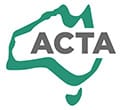The 5 most popular questions about learning to teach English© Language Training Institute
Last updated: 1st July, 2022 Choosing to study TESOL is a BIG decision and you probably have lots of questions before you decide if teaching English is the right move for you!
Below are 5 of the most popular questions we are asked here at Language Training Institute (LTi): 1️⃣ What career options are there after doing a TESOL Course?
This is the #1, most common question and the hardest question to answer because it can vary so much! The short answer is teaching English, but the long answer is more complicated. Your career path is likely to be as unique as you are and it depends on a number of different factors, including:
Generally speaking, if you have any existing qualifications or experience then your chances of landing your dream job are higher. If you are starting from scratch, then that's ok, you will just need to be realistic about the types of opportunities that may be available to you. Instead of starting out teaching English to university level students in France for example, you might be more suited to teaching conversational English online. 2️⃣ Which TESOL Course level is best for me?
Before deciding which level is best for you, it is a good idea to consider what you ideally want to do once you finish your course, as this will affect which course is the right fit. A quick 1 minute read overview is below. International TESOL Certificate is for those wanting entry level English teaching skills for use in volunteer or non-accredited English training programs. It includes 9 hours of practical placement. As an example, this may be the right fit for someone who is just wanting some general training so they can do some volunteer teaching in Myanmar (one of our incredible graduates actually did this!). We can offer this training program for a very low price because it doesn't have the costs associated with accredited training, but it still provides the basic essential skills needed to teach English. Certificate IV in English Language Teaching (TESOL) is an Australian Accredited qualification (Course code 11021NAT) and is for those wanting general English teaching skills. It includes one elective unit and 12 hours of practical placement. It is one of the most popular qualifications globally and provides a solid base for someone wanting to teach English in a variety of situations. Diploma of English Language Teaching (TESOL) is close to the Cert IV in terms of popularity, but it covers a lot more. It's for those wanting English teaching skills PLUS program design and coordination skills. It's also an Australian Accredited qualification (Course code 11020NAT) and includes 20 hours of practical placement. It's the qualification that people choose when they want to maximise their employment opportunities and responsibilities (e.g. be employed in a role requiring English program design). It's a big qualification to take on, but you will also get a lot out of it. Graduate Certificate in English Language Teaching (TESOL) is for people who have already completed a degree or have significant industry experience + a lower level qualification, are are wanting to further their career by completing a post graduate qualification. It includes 60 hours of practical placement, taking place over at least 22 days to meet AMEP practical placement requirements. 3️⃣ What if I've never taught before?
That's completely fine! All our courses include a practical placement program that is designed to get you employment ready, so you can confidently enter classrooms around the world (or online!) and teach English. We don't just throw you in the deep end though. You start off with theory-based tasks and case studies to teach you the basics of lesson planning, classroom management strategies, teaching techniques, resource selection and so much more! We then move you on to practical placement, which starts off with observation, where you watch and learn from an experienced Trainer. After observation, you move on to the most rewarding part of the course - practice teaching. This is where it all comes together and you get your first taste of delivering your own lessons and working with others to improve their English skills. Practical placement takes place in an authentic English learning situtation and can be added to your resume as voluntary work experience. 4️⃣ What if I can't find a placement?
We've got you covered. We have online placements accessible from anywhere in the world via live video conferencing. This has been an amazing and unique opportunity for our students during the pandemic, as it develops the skills around teaching English online. If you'd prefer an in-person experience, you may choose to seek out opportunities in your local community. We can assist you with approaching organisations and depending on your location, we may be able to recommend organisations who have already hosted our students. Please keep in mind that if you choose to find your own placement rather than using one of our recommended organisations, we will need to check that placement you find meets the Course requirements before you start. 5️⃣ How DOES FLEXIBLE LEARNING WORK?
Our online TESOL Courses are a self-paced option for people who need the flexibility to fit study in around work or life commitments. You have up to 24 months to complete the Diploma or 18 months to complete the Certificate IV. You can choose when to do your course work, as these courses don't have set study days or times that you must attend. To help you get through the TESOL Course, you'll have:
If you're still not sure about how you could fit study into your life, you might find our "8 Tips for studying from home" blog post useful. |
+ Other Frequently Asked Questions (FAQs)
|
Do you guarentee a job at the end?
No, but 83% of our graduates are employed or enrolled in further study (e.g. university) after training. *Based on 2020 independent National Centre for Vocational Education Research (NCVER) data Be careful with providers who claim to give you a job at the end - will they actually deliver or are they just trying to lure you in? Is it actually a job or just an interview? If it is a job, ask a lot about what sort of job it is, where it is and what payment you will get (and whether it is even enough to cover living costs in that country). Is it actually a job that you would want or is it a job that is difficult to fill with low pay and an undesirable location? We focus on offering you a great course which is backed by our long standing, strong reputation in the TESOL industry. We make sure that when our graduates finish the course, they are employment ready and fully equipped to confidently enter classrooms around the world (or online) to teach English. Can I do the Course 100% Online?
Yes! We even have online practical placements available with ESL learners who attend virtual classes (via video conferencing). This can help you to get ready to teach in today's virtual classrooms. Can I Do my Prac Overseas?
Yes, If you find a suitable placement with an overseas institution (or are going to one of our class locations) then you can do your placement overseas. If you choose to source your own placement organisation overseas, you will need to make sure there is:
HOW LONG DO I HAVE TO COMPLETE THE COURSE?
You can either be enrolled as a full-time student or a part-time student. Below are the part-time course durations:
Learn more about timeframes & assessment... THERE SEEM TO BE SO MANY TESOL COURSES OUT THERE - HOW DO I CHOOSE?
Go with your gut - if you want to do a course that will be worth something when you finish and avoid ending up with 'just a piece of paper', there are a few questions you need to think about before choosing:
What to check when comparing TESOL Courses:
To save you some time, here are the answers to those questions about us and our courses:
HOW MUCH DOES THE COURSE COST?
It depends on which course you do and whether you pay via payment plan or upfront.
IS THE COURSE GOVERNMENT FUNDED?
The TESOL Courses aren't funded, but we have payment plans available. The Certificate IV in TESOL is also registered for Centrelink support payments (such as Austudy, Pensioner Education Supplement, etc) and depending on your personal circumstances, you may be eligible for a payment (enquire directly with the Department of Human Services). Why should I choose to study with lTi?
Choosing WHAT to study is a big decision and choosing WHO to study with is almost just as important. We were the first organisation to have a TESOL Course accredited by the Australian Government. Over the years we've seen many TESOL providers come and go, but we are here to stay. Our long history means you can count on us to continue to support you through studies. We are extremely proud that other training providers use our courses and resources to train their students too. We collaborate with our strong network of global providers to help us stay on the cutting edge of teaching techniques worldwide and keep in touch with shifts in the English teaching industry. We're not in it for the money though, in fact, we're a not for profit organisation. student fees go straight back into developing better courses and resources, as well as providing national and international education opportunities. We truly believe that teaching English to speakers of other languages can open a world of opportunity for both our graduates and the students that they go on to teach. If you're ready to choose a meaningful and truly rewarding pathway that can make a difference in other people's lives, then we encourage you to pursue a future in teaching English! WHY ARE THERE DIFFERENT COURSE CODES?
If you're comparing TESOL Courses, you may have noticed a few different "Course Codes" out there. Some of the most popular are 11021NAT and 10773NAT. The difference in the Course code is to do with Government Accreditation. Accredited courses can have different codes, but the same name. Just like different universities have their own degree codes for their particular Bachelor degrees (e.g. a Bachelor of Education at one university will have a different code to another university, even though they're both called the same thing). In 1996 we were the first organisation to gain Australian Government accreditation for a Certificate in TESOL (Teaching English to Speakers of Other Languages). Over the years, different organisations have created their own version of what a "Certificate IV in TESOL" or "Diploma of TESOL" is. A lot of them were remarkably similar to our original course, but the courses can vary in their content. Every 5 years accredited courses must be re-accredited, a process which involves organisations applying to the government for their courses to be given another 5 years of accreditation. Each time a course is re-accredited there may be changes (which is a good way of keeping up with industry standards) and the course is given a new code. Our current 11021NAT - Certificate IV in TESOL has already been approved for re-accreditation. When the time comes, it will have a new code and the title will be changed to Certificate IV in English Language Teaching (TESOL). The title change is in response to the global industry, which doesn't always use the acronym TESOL, as this is an acronym which is more commonly used in Australia and less commonly used in other parts of the world. Other common acronyms are listed at www.lti.edu.au/what-does-tesol-mean if you're interested to know more about them. Even though the accredited course codes will change over time, the courses will still be recognised as a valid Australian Accredited Qualification. WHy DO TESOL Course PRICES VARY?
If you're comparing different TESOL Courses and Training Providers, you may have noticed that the price of a TESOL course can vary a lot, even when it appears to be the same course. So why the difference? A few factors can play into how a TESOL course fees are set, mainly:
Depending on who you study with:
We are a not-for-profit training organisation, so we put our training fees as low as possible to cover basic costs and allow us to be competitive in the market. All resources are included in our course fees, including the practical placement, which we can provide for you in an online environment or refer you to local organisations if they are in your area. |




